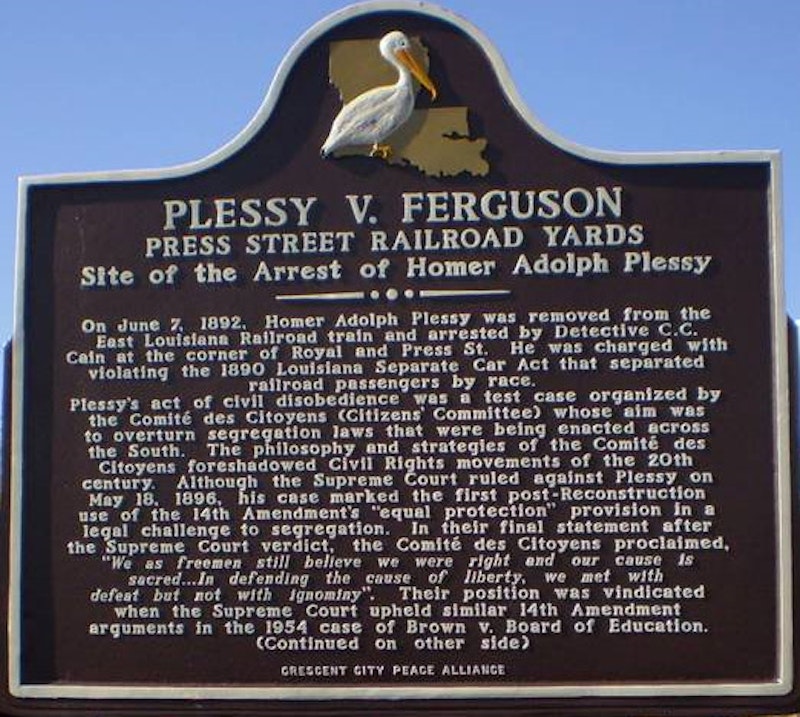Study Notes
Plessy v Ferguson 1896
- Level:
- A-Level
- Board:
- AQA, Edexcel, OCR, IB
Last updated 22 Mar 2021
This Supreme Court Case ruled that the ‘separate by equal’ provision in private services that was required by state government was constitutional under the Equal Protection Clause (14th Amendment). This ruling was overturned by the Brown v Board of Education decision in 1953.

Background to the case:
State law in Louisiana required that railroad companies have separate accommodation for both black and whites, which meant separate railway carriages. The Committee of Citizens, made up on a mix of black and white residents, attempted the repeal the law and organised a test case for the law. They managed to persuade Homer Plessy who was mixed race to purchase a first class ticket and sit in the white car, which would have been illegal.
The Committee hired a private detective to challenge and then arrest Plessy to ensure that he was charged for the violation of the Separate Car Act, rather than any other crime. In the lower cases, it was argued that the Separate Car Act, denied Plessy of his rights under the 13th and 14th amendments which provide for equal treatment. The case was thrown out as the judge John Howard Ferguson ruled that railway companies can be regulated by the state as long as they operate within the state’s boundaries.
The case was taken to the Supreme Court of Louisiana, who confirmed the ruling of the lower court and added precedents from Massachusetts and Pennsylvania who had declared segregation constitutional.
The case ended up in the Supreme Court in May 1896.
Decision:
Separate by equal provision is legal under the Equal protection clause, and was handed down by a 7-1 decision.
You might also like
The Bill of Rights
Study Notes
Engel v Vitale 1962
Study Notes
Summary of Landmark Supreme Court Rulings
Study Notes

The US Judicial system explained
5th February 2016

Primer on the US Supreme Court
27th October 2016
Moving towards the US Supreme Court's first black female justice
28th January 2022
Heads up on great civil rights documentary
5th April 2022
Daily Email Updates
Subscribe to our daily digest and get the day’s content delivered fresh to your inbox every morning at 7am.
Signup for emails